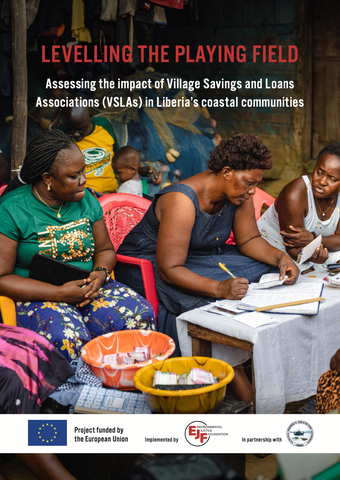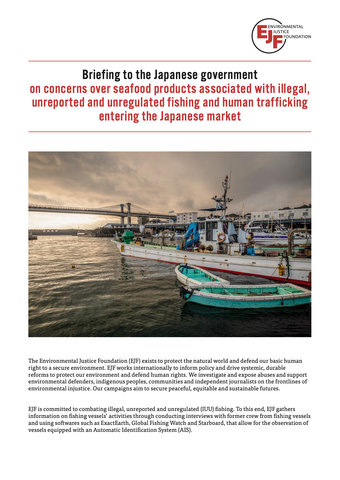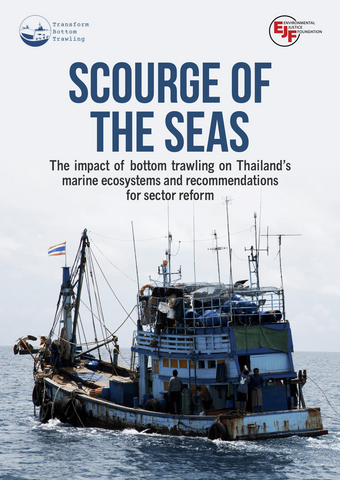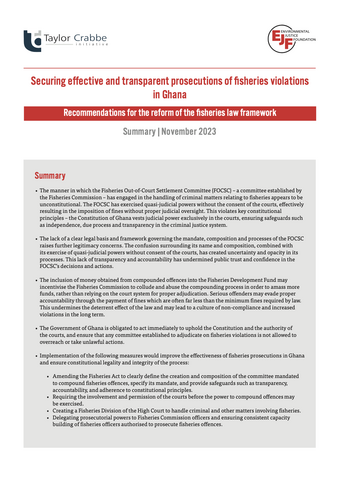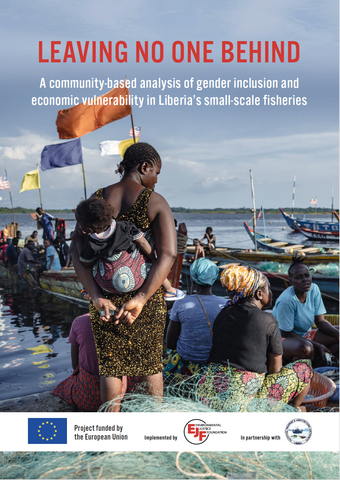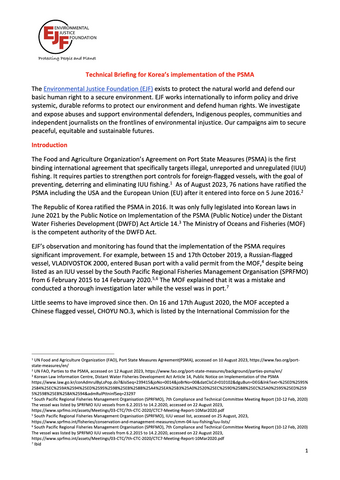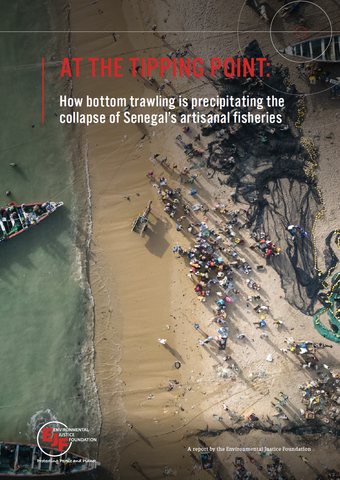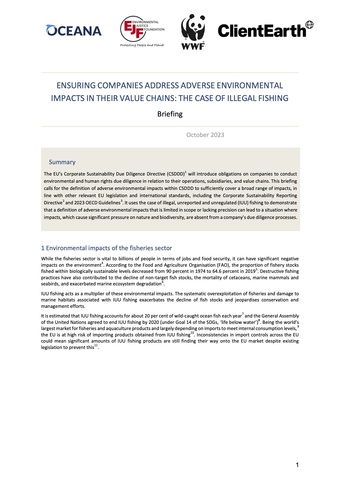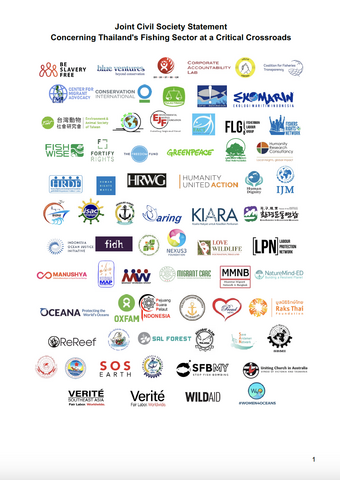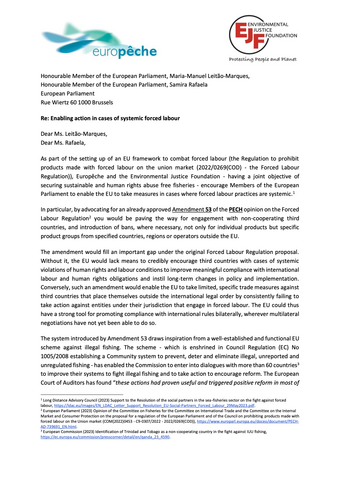Levelling the playing field: Assessing the impact of Village Savings and Loans Associations (VSLAs) in Liberia’s coastal communities: Women play an integral role in Liberia’s small-scale fisheries (SSF). However, the contribution women make to the sector is threatened by challenges that undermine their livelihood opportunities and limit their active participation in fisheries decision-making processes. The Village Savings and Loans Association (VSLA) scheme seeks to address these challenges and increase women’s participation in the governance and management of Liberia’s SSF sector. This report presents the findings of an evaluation of the impact of these VSLAs in their respective communities over a period of one year
Briefing to the Japanese government on concerns over seafood products associated with illegal, unreported and unregulated fishing and human trafficking entering the Japanese market: This briefing follows careful reviews of the current seafood import control system in Japan. It identifies five major legislative loopholes that should be addressed urgently – these loopholes are insufficient coverage of species, negligence in considering human rights, a lack of transparency, an absence of traceability and insufficient penalties when infractions are detected.
Securing effective and transparent prosecutions of fisheries violations in Ghana: Recommendations for the reform of the fisheries law framework: This briefing analyses the key gaps and weaknesses in Ghana’s current prosecution system for fisheries violations, both in terms of the legal framework and in terms of practical implementation, and provides recommendations for addressing these issues, considering the ongoing reform of the national fisheries law framework.
Leaving No One Behind: A community-based analysis of gender inclusion and economic vulnerability in Liberia’s small-scale fisheries: This report documents gender issues in the fisheries sector in Liberia and reveals that strategies to advance women's status in small-scale fisheries are still a key development issue. It also shows that marginalised and economically vulnerable groups in Liberia's fishing communities are being excluded from crucial decision-making processes.
Technical Briefing for Korea’s implementation of the PSMA: The Food and Agriculture Organization’s Agreement on Port State Measures (PSMA) is the first binding international agreement that specifically targets illegal, unreported and unregulated (IUU) fishing. The Republic of Korea ratified the PSMA in 2016 – however, EJF’s observation and monitoring has found that the implementation of the PSMA requires significant improvement.
Open-letter to Senegal's Minister of Fisheries and Maritime Economy (MPEM) - The issue of bottom trawling in Senegal: To draw attention to the crisis in Senegal’s fisheries sector caused by the environmentally destructive, unsustainable, and often illegal fishing practices of the country's trawler fleet. Immediate and strong action is needed to mitigate the environmental and socio-economic impacts of this fishing activity, to protect the livelihoods and food security of artisanal fishing communities.
Policy brief : The legal case for an effective GFCM compliance mechanism: The legal analysis by Professor Tullio Scovazzi and Professor Simone Vezzani of the GFCM’s legal framework, applicable international law, and existing compliance regimes of other Regional Fisheries Management Organisations (RFMOs) indicates that the reasons for this gap are of a political, not legal, nature.
At the tipping point: how bottom trawling is precipitating the collapse of Senegal’s artisanal fisheries: Artisanal fishing communities are the beating heart of Senegal’s fisheries sector, yet they are under threat. This report documents the environmental and socio-economic impacts of bottom trawling in Senegal.
Briefing: Schädliche Umweltauswirkungen im EU-Lieferkettengesetz – Fallbeispiel: IUU-Fischerei: Dieses Briefing zeigt anhand des Beispiels der illegalen, unregulierten und nicht gemeldeten (IUU-)Fischerei, dass eine weit gefasste Definition schädlicher Umweltauswirkungen im EU-Lieferkettengesetz dazu beitragen kann, besonders schädliche Auswirkungen der Fischerei auf die Umwelt zu verhindern und die Nachhaltigkeit in diesem Sektor zu fördern.
Joint Civil Society Statement Concerning Thailand's Fishing Sector at a Critical Crossroads: The Royal Thai Government’s progress to date in achieving a sustainable, legal, and ethical Thai fishing sector is commendable. However, rolling back reforms now would pose risks to Thailand and its fishing industry, especially when the global community is moving toward greater transparency and accountability in the seafood industry.
Enabling action in cases of systemic forced labour: As part of the setting up of an EU framework to combat forced labour, Europêche and the Environmental Justice Foundation - having a joint objective of securing sustainable and human rights abuse free fisheries - encourage Members of the European Parliament to enable the EU to take measures in cases where forced labour practices are systemic.
